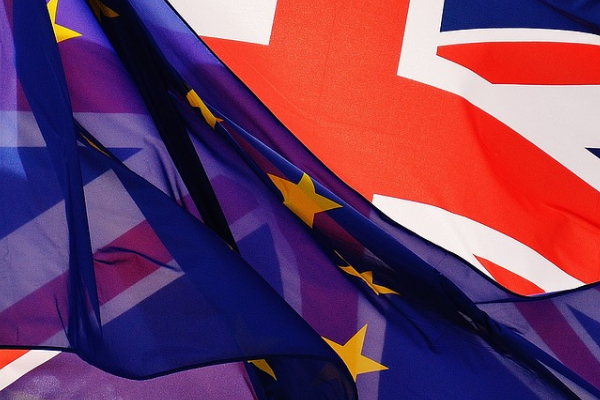
No Deal Brexit and the Effect on Europe
Read a summary using the INOMICS AI tool
The Brexit clock is now deafening, and the British political and media establishments seem utterly consumed by its inexorable ticking. In the public realm, little else is considered, even less discussed. And yet, despite this obsession, with just 42 days before Britain departs the European Union, negotiations for a withdrawal agreement remain in deadlock, and the hopes of breakthrough seem to be fading. At the core of the dispute is the Irish backstop and, by proxy, participation in a customs union. On both, neither the Conservatives nor Labour appears capable of sincere compromise, favouring, instead, a game of high-risk brinksmanship. The stakes: the future of the country. By using the approaching deadline as leverage, aimed to cow opposition, Prime Minister Theresa May is gambling, big. And at the point of writing, it's unclear who will hold their nerve. Without concessions being made, Britain will crash out of the EU with no deal, with World Trade Organisation (WTO) tariffs beckoning.
 Economists are almost unanimous in their assessment that in this scenario the British economy would take a battering, and possibly slip into recession. Projections make for dismal reading and include a GDP depreciation of 9%, a drastic fall in house prices and a possible run on the pound. For most this is nothing new. Ardent remainers remind us of these forecasts on a daily basis, appearing to revel in the delivery of such gloomy predictions - project fear showing it has legs yet. Less, on the other hand, tends to be said of the damaging effects a ‘disorderly exit’ would have on the 27 remaining EU member states. Indeed, for those countries with high levels of integration with the UK economy, these effects could be severe.
Economists are almost unanimous in their assessment that in this scenario the British economy would take a battering, and possibly slip into recession. Projections make for dismal reading and include a GDP depreciation of 9%, a drastic fall in house prices and a possible run on the pound. For most this is nothing new. Ardent remainers remind us of these forecasts on a daily basis, appearing to revel in the delivery of such gloomy predictions - project fear showing it has legs yet. Less, on the other hand, tends to be said of the damaging effects a ‘disorderly exit’ would have on the 27 remaining EU member states. Indeed, for those countries with high levels of integration with the UK economy, these effects could be severe.
Ireland, the Netherlands, Belgium, and Germany stand out among those most at risk. Below we take a closer look at what each country can expect if, come March 31st, Britain leaves the EU with no withdrawal agreement in place, and reverts to WTO tariffs to regulate its trade.
Ireland
Worst affected of the EU27 countries is likely to be Ireland because of the highly integrated nature of the Irish and UK economies. Annually, Irelands’ trade with the UK is worth an estimated €65 billion, and sustains over 400,000 jobs on both islands. For this reason, the imposition of steep WTO tariffs on this trade; the huge increase in customs paperwork; and the risk of long delays on goods and shipments to and from the European mainland has got Irish businesses frantically preparing for the worst.
And their fears seem to arranted. Only recently, the IMF predicted that Dublin would suffer a 4% hit to its GDP. Mainly, this is because two of the country’s top exports – meat and dairy products – would face some of the highest tariffs, as per WTO instruction. The price increase would be absorbed by the consumer and massively reduce the products’ competitiveness, meaning profits would tumble and businesses falter. Commenting on the consequences of no deal, Governor of the Central Bank of Ireland, Phillip Lane, warned that ‘the agri-food sector would be disproportionately affected, with a corresponding outsized [negative] impact on rural regions, especially near the Border.’ The economic damage, he cautioned, although unevenly distributed, would also likely be ubiquitous, every area of economic activity enduring at least some disruptive effects.
And this, of course, is before even mentioning the backstop. The European Commission has made it clear that no deal would make the creation of a hard border unavoidable. There is widespread fear that anything but a soft border could destabilise Ireland’s highly sensitive peace process – a hard border compared, by one leading expert, as like re-opening a ‘gaping wound’.
Netherlands
Britain is the Netherlands' third-biggest trading partner and also stands to take a significant economic hit. A study from the Organisation for Economic Cooperation and Development expects exports to Britain to fall by 17% if no withdrawal agreement is secured. Research published by the Dutch Court of Audit has fleshed out these claims, estimating that this would cost the Netherlands an estimated €2.3 billion by 2023.
Acute disruption would be especially felt in port cities like Rotterdam whose docks, rail yards and warehouses handle nearly 1 million tonnes of goods moving to and from Britain every week. With increased customs inspections shipping and logistics companies are predicting that what currently takes a day to get to Britain could, post-Brexit, take almost two. For a system in which margins of error are customarily measured in minutes, this is a dramatic increase, and there is concern that the roads leading to the ports will quickly come to look like parking lots. At present, there is no overflow space for trucks unable to drive straight onto ships.
Belgium
Neighbouring Belgium is also bracing itself. Former Minister Johan Van Overtveldt has been explicit in his warnings, explaining: 'Belgium is the fourth exporter, in nominal amounts, into the UK, on a par with France, which is a much bigger country. And so, if Brexit goes the wrong way, in terms of the hard Brexit, it will hurt the Belgian economy very seriously.’
The Belgian government has told businesses that a no-deal Brexit could lead to the imposition of up to €2.2bn (£1.96bn) in extra tariffs on goods and the loss of more than 40,000 jobs. It intends to present a series of emergency Brexit legislation to parliament before the end of February to avoid any further
Belgium’s finance minister, Alexander de Croo, has complained that the British need to finally decide what they actually want from negotiations. 'Over the last few months we’ve fallen from one surprise into another,' he said in an interview with radio-station De Ochtend. 'The only constant is that the British are masters at shooting themselves in the foot and creating associated chaos.' The scale of that potential chaos he made clear claiming that only 5,000 of the 25,000 Belgian companies that trade with Britain were ready for the customs checks that could follow Brexit. How this deficit will be handled remains to be seen.
Germany
Even the economic powerhouse Germany will face trouble. Currently, the country exports an array of industrial goods to Britain, including around 800,000 cars per year - 14% of all cars it produces domestically - which accounts for 20% of the country’s global exports. No deal would jeopardise at least 100,000 jobs, and economists have calculated that 15,000 workers in the German car industry - t close to one in ten - could be made redundant if WTO tariffs sprang up in Britain.
The blow would be felt across much of the country but it would probably concentrate on high-tech manufacturing centres such as Wolfsburg, the home of Volkswagen, and Böblingen, a suburb of Stuttgart where Siemens and IBM are the leading employers. In a potential sign of things to come, the flow of German products to the UK has fallen between 6-8% since the Brexit referendum.
-
- Postdoc Job
- (Remote)
- Posted 3 weeks ago
Vacancy for a Postdoctoral fellow
At University of Ghent in Gent, Belgium
-
- Postdoc Job
- Posted 2 weeks ago
Postdoctoral Research Fellow Opportunity
At University of Notre Dame in Notre Dame, United States
-
- Assistant Professor / Lecturer Job
- Posted 1 week ago
Visiting Assistant Professor - Economics
At Boise State University in Boise, United States













